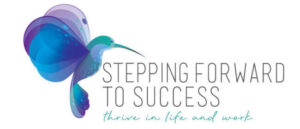As you navigate your provisional teaching journey, know that you will be assigned a mentor to guide you through.
But, what is the actual role of that mentor?
How can they actually help you through this time and what can you lean on them for?
Well, those are the very things we are tackling in this article.
Let’s explore the role of your mentor during your teaching certification timeframe.
The Mentor’s Role In Your Provisional Teaching Journey

Who Will Your Mentor Be?
It is widely understood that the process of becoming a fully qualified early childhood teacher is a rewarding journey, but it can also be challenging. That’s why you will be assigned a mentor as part of that process. There are a number of options for who your mentor might be.
The most common is that you will partner with an experienced teacher within the Centre you are working at. This teacher will be fully registered and can speak from experience, having gone through the certification process themselves. This kind of mentor is a great option as they will already have a strong understanding of the Centre’s policies, practices, and values, and can provide on-site guidance and support.
If there are no suitable teachers to act as your mentor at the Centre you are working at, then you may be able to have a mentor assigned by your education provider. Alternatively, you can seek an expert external mentor like myself, who is experienced in the ECE sector and brings a fresh perspective, broader knowledge and expertise to support your professional growth.
Rest assured, regardless of who your mentor ends up being, you will have strong support throughout this exciting period in your career development.
What Will Your Mentor’s Role Be?
First Point Of Contact
Your mentor should always be the first point of contact for any questions or concerns that you may have while undertaking your provisional teaching certification. That could mean questions about how the Centre operates and how you can uphold its values and teaching practices. Or it could be questions specific to the work you need to undertake to gain full certification.
Regardless of your query or concern, you should always check in with your mentor before anyone else so that they can be across your needs and help you progress.
Guidance and Support
The primary role as a mentor during this time is to offer guidance and support. They will literally be there to help you navigate the teaching journey. Your mentor can help in a number of ways, they may offer advice, share their expertise and assist you with understanding and implementing the relevant values, teaching practices and Te Whᾱriki principles.
You may also find yourself working together to strengthen your teaching bonds via educative mentoring.
Observation and Feedback
Part of your mentor’s role is to observe your teaching and the work you are undertaking for your provisional teaching requirements. Part of that observation process is to meet with you regularly to provide constructive feedback.
During these feedback meetings, your mentor will help you reflect on your teaching practices, strategies, interactions with children, and your overall professional growth. Feedback may be general or could focus on specific areas of your certification like planning, assessment, how you teach, or making progress towards your inquiry goals.
As we just mentioned, you and your mentor may also choose to embrace Educative Mentoring. This is a process where mentors and mentees become co-learners, engaging in activities and discussions that inspire new ideas and insights.
As much as you might learn from your mentor, with educative mentoring, your mentor can also take the opportunity to learn from you. This style of mentoring utilises collaboration and builds everyone’s teaching skills and abilities!
Goal Setting and Professional Development
You know that as part of your teaching certification, you will need to set and work through inquiry goals. Your mentor will be a big part of supporting you through that process. They may also help you to set other professional goals that you can work towards achieving. As well as setting those goals, they’ll work with you to create a plan for how you will go about achieving them.
Your mentor can help you to identify areas of growth and assist you with designing strategies to enhance your teaching skills and knowledge. They can also provide resources, suggest relevant training opportunities, or recommend professional readings that will help you achieve the targets you have set for yourself.
Documentation and Assessment
Another key mentor role is helping you compile the documented evidence of your teaching practices and the elements you need to meet the requirements of full teaching registration. This process helps you to focus on the ways you are developing as a teacher.
It can include gathering and organising documentation like learning stories, assessments and reflections that demonstrate your competence in meeting the certification standards.
Reflective Practice
One of the major factors in setting and refining your long-term teaching strategies is engaging in reflective practice. Reflecting on various aspects of your teaching fosters critical thinking and hones your self-evaluation skills.
Your mentor can help you to reflect on your experiences, consider alternate approaches to things that didn’t go so well, and guide you in refining your teaching methods. This reflection process can help you gain deeper insight into your practice and will assist you in making informed decisions about your professional growth and development.
Build Positive Relationships
When starting out in your teaching career, you may not have many professional connections yet. Your mentor can help you to build positive relationships with your students, colleagues and the wider early childhood community. This could include introductions, opportunities for networking, collaboration, or simply facilitating engagement in professional learning communities.
Making The Most Of Your Mentor
To act as a mentor, people need to be experienced, supportive and knowledgeable. You should maximise the opportunities ahead of you by truly connecting with your mentor and respecting all they have to offer you.
And, if you find that you need an additional level of support or an external perspective, then you can seek further mentoring from other sources too.
As a member of the ICF (International Coaching Federation), I specialise as an ECE coach. My wealth of experience in the Early Childhood profession gives me the tools to support teachers to thrive in life, by implementing intentional change.
if you need that extra bit of support throughout your provisional teaching journey or beyond, then reach out to me today for a chat.
I have the Roadmap to Certification resource available to provide insight into setting up your provisional registration journey, you can check it out here: https://steppingforwardtosuccess.co.nz/roadmap-navigating-ece-provisional-teaching/
Click here to read more about the Roadmap or click here to purchase the Roadmap to Certification ebook for Provisional Certified Teachers. Alternatively, if you are wanting to learn more about my packages, reach out today.
Useful links:
My Website

